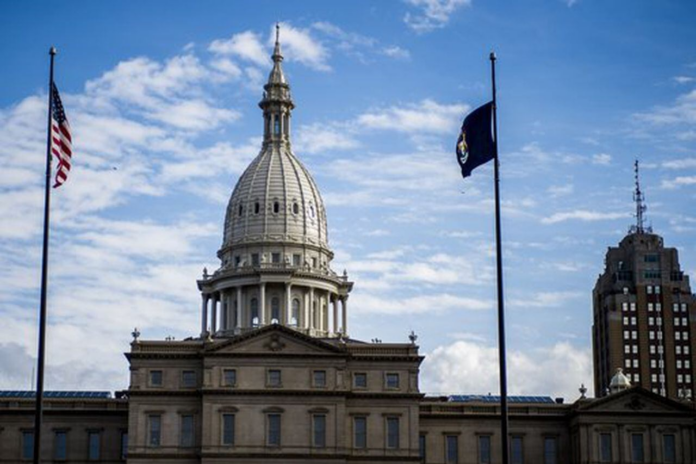The Michigan House unanimously approved legislation Wednesday that would close a loophole allowing the secretary of state to avoid punishment for campaign finance violations.
The legislation that passed by a 106-0 vote would grant the attorney general the authority to punish the secretary of state in the event of a violation of the Michigan Campaign Finance Act (MCFA). Four representatives were absent.
The bill now awaits consideration by the Senate.
The secretary of state investigates and resolves all violations of the MCFA. When the secretary of state or someone connected to them is accused of violating the law, the attorney general’s office investigates.
However, as Attorney General Dana Nessel pointed out in a recent campaign finance violation case against Secretary of State Jocelyn Benson, the attorney general can’t issue punishments under the MCFA. At the time, Nessel’s office said lawmakers may want to consider fixing this issue.
After Benson received only a warning and reminder of the law from Nessel’s office, House Republicans introduced the legislation, citing a lack of consequences for the secretary of state. Nessel’s office said the outcome was appropriate.
“No elected official is above the law in Michigan. The secretary of state should have to answer to Campaign Finance Act violations just like every other elected official in Michigan,” said bill sponsor state Rep. Angela Rigas, R-Caledonia. “By approving this legislation today, we’re making it clear that no elected official can sidestep state law and escape punishment. Anyone who prioritizes integrity in our election system should support this bill.”
Benson supports the legislation.
Nessel in May determined that Benson violated the state’s campaign finance law when she used a state-owned building to announce her run for governor in 2026.
Benson, a Democrat, on Jan. 22 invited reporters to the lobby of the Richard H. Austin Office Building in Lansing to watch her file candidate paperwork and ask questions about her newly launched campaign for governor. The MCFA prohibits using public resources, including space, for political campaign activities.
A spokesperson for Benson’s gubernatorial campaign previously said Nessel was issuing “a new interpretation of the law.”
Under Michigan law, knowingly using public resources for political campaigns can result in a misdemeanor charge carrying up to one year in jail and a $1,000 fine.
Benson received only a warning and a reminder of the law. Under the House bill, Benson likely wouldn’t have faced jail time or criminal proceedings for this violation.
Even though Nessel’s office was barred by state law from handing out any further punishment, the outcome was appropriate given the circumstances of the violation, Joshua Booth, chief of the AG’s Opinions Division, said at the time.
Booth said it’s not unusual for the secretary of state to resolve violations by those means.
State law says the secretary of state, when dealing with misdemeanor campaign finance violations, should use informal means to resolve the situation. That includes conducting a conference, using persuasion, or entering into a conciliation agreement.
Conciliation agreements often include an admission of the violation, an agreement to not do it again and sometimes a payment of fines or fees. If the violator abides by the agreement, they face no further criminal or civil action.
The House bill states that the attorney general’s office would have to carry out resolutions for misdemeanor campaign finance law violations involving the secretary of state in this same way.



